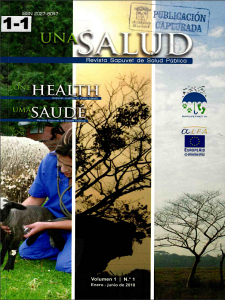Abstract
The use of antibiotics has contributed to the control of bacterial diseases and in the field of production has improved the productive performance of animals. However, the inappropriate use of them has led to adverse effects including bacterial resistance to these products. This represents a serious public health problem because many diseases have failed to respond to commonly used antibiotics. The development of bacterial resistance to antibiotics is based primarily on two factors: the selective pressure by the use of these products and the presence of resistance genes. A number of bacteria that infect humans and animals have shown resistance to antibiotics in different parts of the world as well as a number of antibiotics have been used interchangeably in the treatment of diseases in humans and animals. The idiosyncrasy of individuals and the lack of regulations especially in Latin American countries has contributed to an irresponsible use of these products. The use of antibiotics in inappropriate pathological, therapeutic applications of antibiotics without professional supervision and free marketing of antibiotics are among other factors compounding the problem. Efforts to develop new antibiotic products are not enough. A series of rules and restrictions have been enacted to regulate the use of antibiotics in animal production and the presence of the same in the food people consume. Currently programs are being carried out illegal residues in food intended for human consumption, and promoting responsible use of antibiotics in both human and veterinary medicine, which is expected to mitigate the impact of antibiotic resistance in public health.Downloads
Download data is not yet available.



